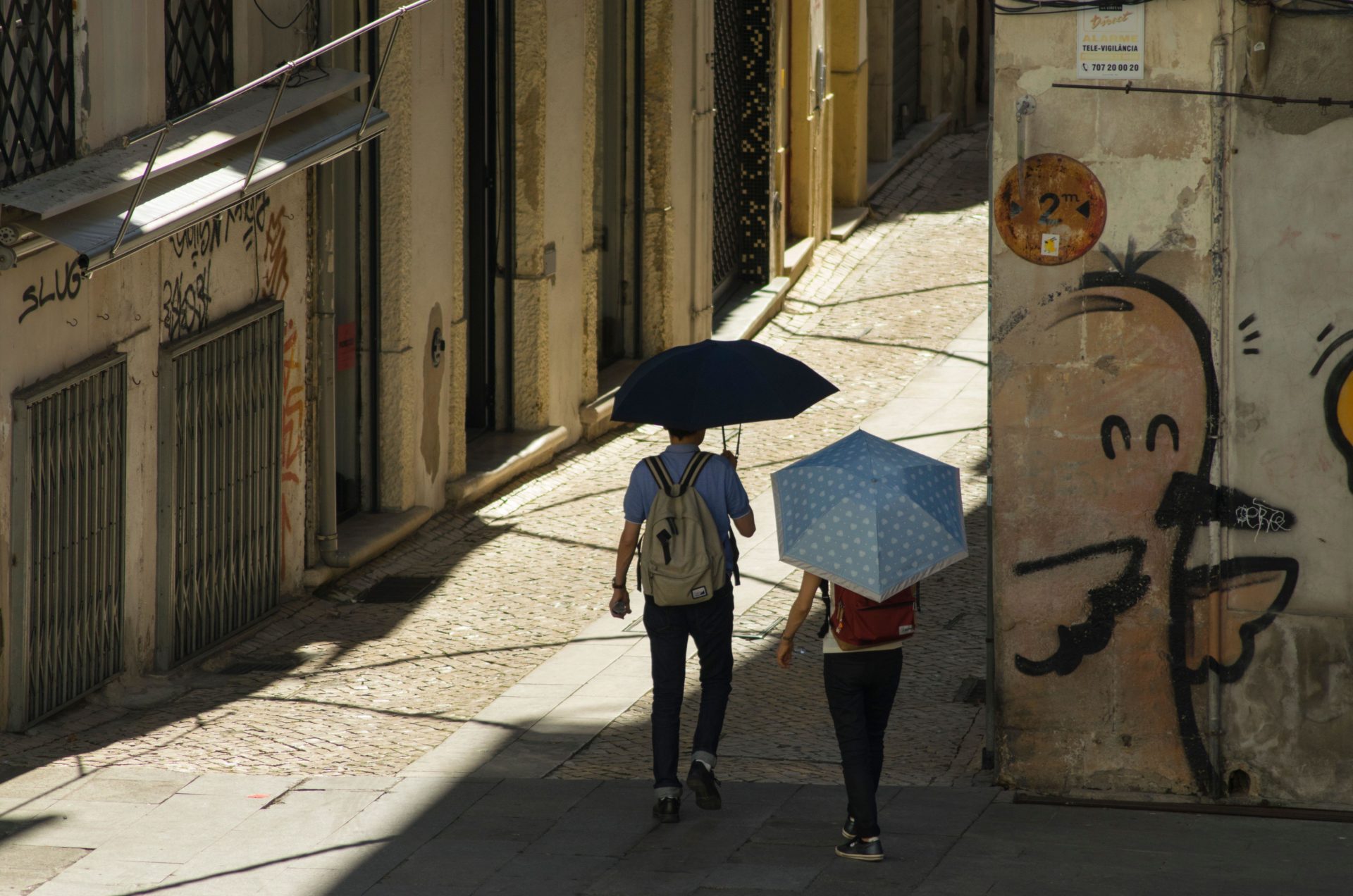Genetic differences may mean global warming leads to a "survival of the coolest", according to Professor Luke O’Neill.
On The Pat Kenny Show this morning, the Trinity Professor said heat shock proteins – special proteins made by cells to protect the body under heat conditions – may be the reason some people struggle more than others to handle the heat.
"Heat shock proteins are a big research area because they'll protect cells in different continents," he said.
"We're all different genetically – you might have more than me.
“That would mean, with global warming, we may be selecting out people who have a better capacity to cope with the higher temperatures.
"The great phrase is survival of the coolest."
Prof O’Neill said human bodies do have the ability to adapt to high temperatures.
"If you go on holidays, you do adapt – you get used to the heat because your body is beginning to adapt and make these heat shock proteins," he said.
 Woman with a brochure in her head trying to protect herself from the sun. Image: Konstantinos Tsakalidis / Alamy Stock Photo
Woman with a brochure in her head trying to protect herself from the sun. Image: Konstantinos Tsakalidis / Alamy Stock PhotoHeat exhaustion and heat stroke can occur when the body can no longer handle scorching weather and has lost the ability to cool down, Prof O'Neill said.
"You can get heat exhaustion and you just get overheated," he said, "Basically your body gets too hot, and there are symptoms like a bit of confusion, dizziness, light-headedness and dehydration."
"But the trouble is, it can turn into heat stroke and that's much more serious and that's when your body temperature goes up to 40 degrees.
"That's far too hot for all your organs and your brain and damage then begins – it's a medical emergency, actually."
Sweating
The Trinity professor said the body's natural cooling down mechanism of sweating is only effective if the outside air temperature is warmer than the body's temperature.
"You don't get any heat dissipation so it's much harder then and now the body temperature begins to climb up and things get worse and worse," he said.
"If you're outdoors, and it's 40 degrees – as it is in certain parts of Europe now –that's something to be very careful of because your body is fighting very hard against that increased temperature outside."
 People try to keep cool during a heatwave in Coimbra Portugal, 16/07/2022. Image: Geopix / Alamy Stock Photo
People try to keep cool during a heatwave in Coimbra Portugal, 16/07/2022. Image: Geopix / Alamy Stock PhotoProf O'Neill warned that the biggest risk in this scenario is becoming dehydrated.
"If you are sweating and your temperature isn't going down, you're going to be absolutely dehydrating very quickly," he said.
"Your heart is under huge pressure – the heart is pumping, pumping, pumping to try and get blood up to the surface of your skin ... your muscles are under pressure as well, because the blood is now going into the surface of your skin.
"There's less blood circulating in your muscles, the muscles now begin to burn in a different way, lactate begins to build up like you're exercising and then you get fatigued as well.
Older people are at risk ... and babies, they're the two you’ve got to watch out for.
"Go into the shade, drink plenty of fluids within 30 minutes of the first symptoms emerging ... if you're in 40 degrees heat, don't overexert."
You can listen back here:









